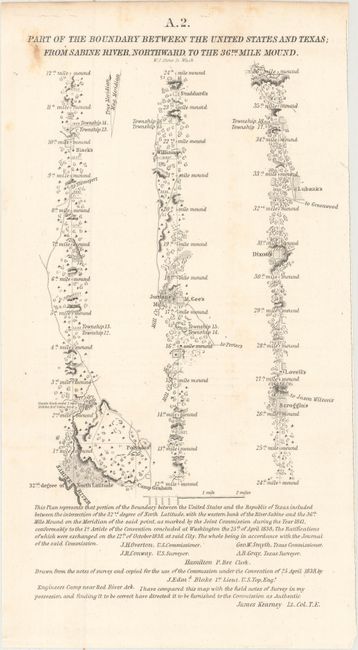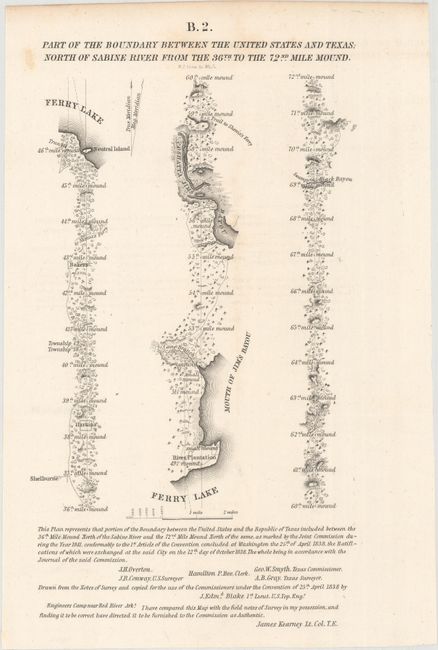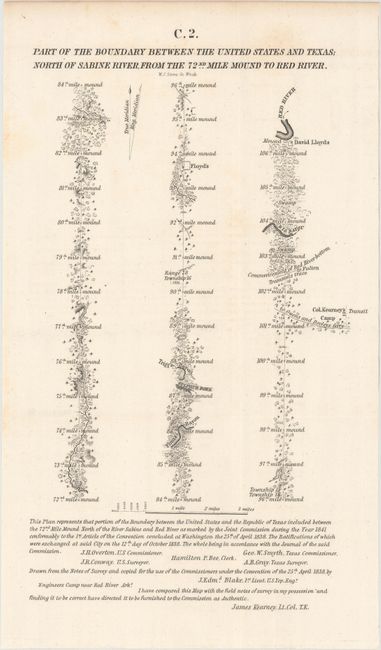Catalog Archive
Auction 163, Lot 369
Rare and Important Maps That Helped Establish Independent Texas' Eastern Border
"[Lot of 3] A. 2. Part of the Boundary Between the United States and Texas... [and] B. 2. Part of the Boundary Between the United Statess and Texas... [and] C. 2. Part of the Boundary Between the United Statess and Texas...", U.S. Government
Subject: Texas-Louisiana Border
Period: 1842 (published)
Publication: Sen. Doc. 199, 27th Cong., 2nd Sess.
Color: Black & White
Size:
6 x 11.4 inches
15.2 x 29 cm
Download High Resolution Image
(or just click on image to launch the Zoom viewer)
(or just click on image to launch the Zoom viewer)




